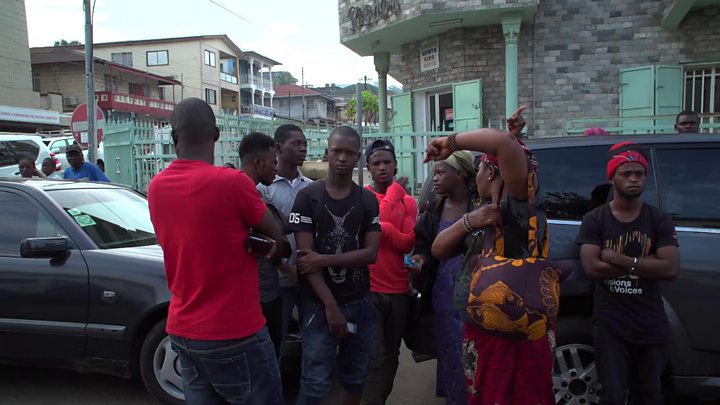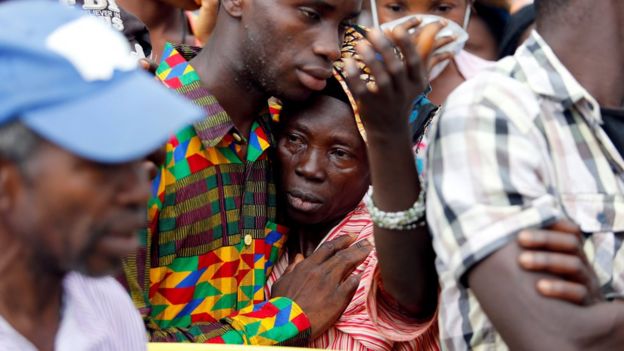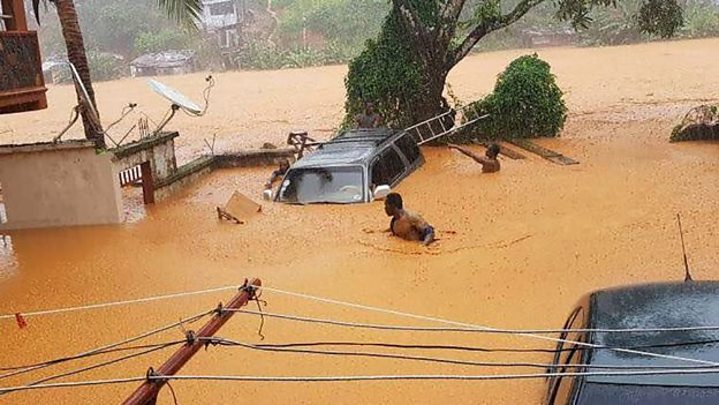A mass burial for about 300 people killed by a mudslide and flooding has taken place on the outskirts of the capital Freetown.
President Ernest Bai Koroma attended a multi-faith memorial service at the burial site in the city of Waterloo.
Some 600 people are still thought to be missing while more than 400 people are known to have died.
About 3,000 people are homeless in what is being described as a humanitarian emergency.
There is also growing concern about the risk to public health from water-borne diseases.
Mortuaries have been overwhelmed by the number of bodies they have received – more than 100 of them are children.
Freetown’s chief pathologist, Dr Simeon Owizz Koroma, said those buried were people who had been identified or whose bodies were badly decomposed.
Mr Koroma told the BBC that the number of bodies he had certified was “approaching the 350 marker. But we’re still expecting more coming, yes…. up to a month or two months, and I believe some are buried with the collapse of masonry, buildings”.
The mass grave in Waterloo is known as the Ebola cemetery after the 2014 disease outbreak, which killed nearly 4,000 people in the country.

Bereaved families have been gathering outside the mortuaries – some carrying pictures of their relatives – in the hope of identifying their lost loved ones.
Sorrie Koroma is searching for his missing 12-year-old daughter, along with his sister and her five children who were staying with them for the school holidays. “I need to see my daughter’s body just so my life can continue,” he told the BBC.
President Koroma, who has visited the stricken area, said “entire communities have been wiped out” and called on the international community to provide “urgent support”.
Sierra Leone began a week of mourning on Wednesday.
 Image copyrightREUTERS
Image copyrightREUTERSThe EU has pledged 300,000 euros (£270,000), and Carlos Martin Ruiz De Gordejuela of the European Commission said the money would go to humanitarian organisations to ensure it reached those most in need.
The Red Cross has warned it is a race against time to find survivors. The search is taking place using diggers and makeshift tools.
Flooding is not unusual in Sierra Leone, where unsafe housing in makeshift settlements can be swept away by heavy rains.
The rains often hit areas in and around Freetown, an overcrowded coastal city of more than one million people.

